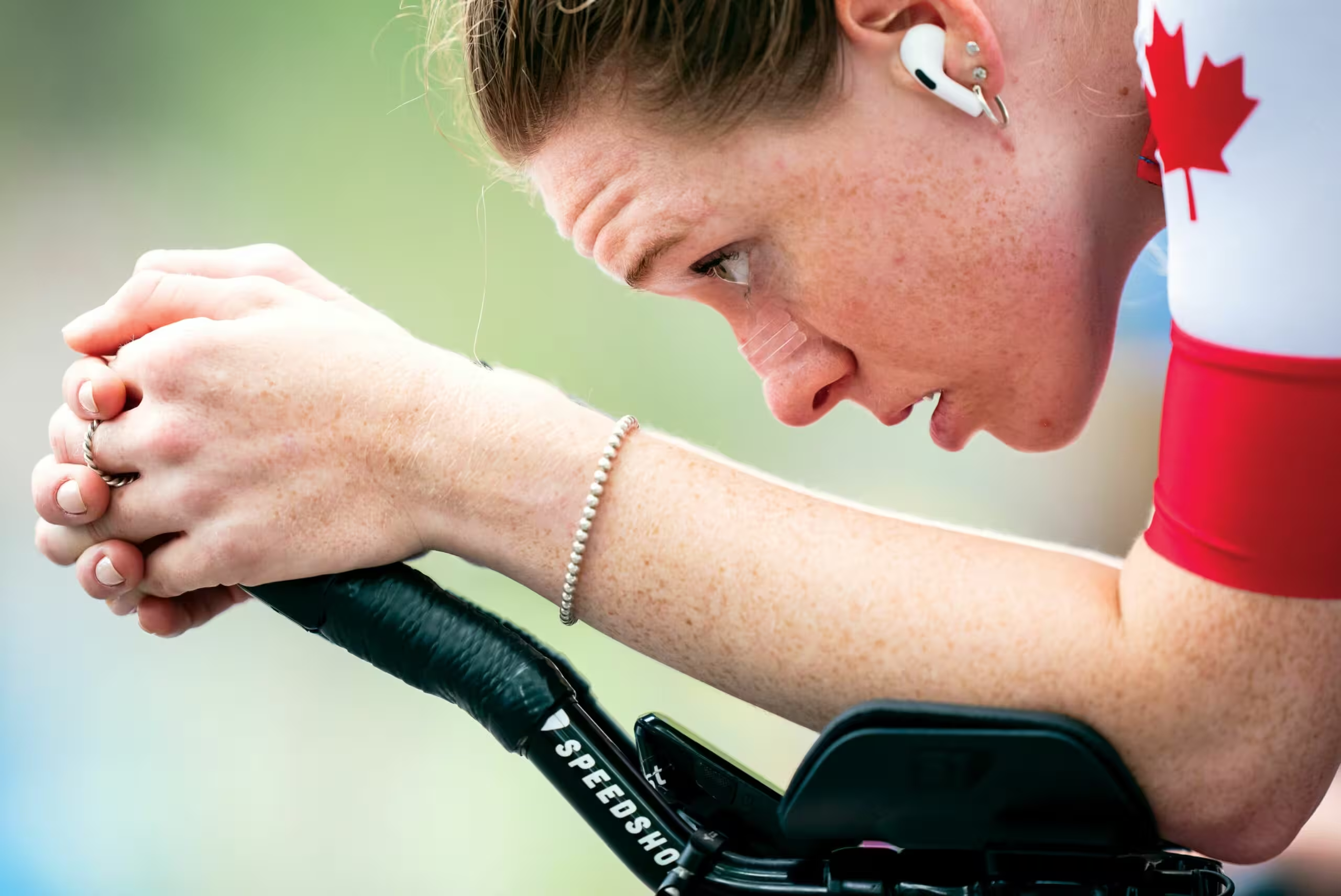Since this story was published, the Canadian cyclists heading to the Olympics have been formally announced. However, the importance of the qualifying and the stress it can take on cyclists mentioned in this article remains the same.
The Olympic dream. It’s such a casual turn of phrase. You simply assume that it’s referring to a worthy, worthwhile cause. But is it truly worth the heartbreak and heartache, the trials and tribulations, the behind-the-scenes work that people tuning in once every four years to watch the Games will never see? Sport takes a physical toll on athletes’ bodies as they strive to bring home the gold for their country, to hear “O Canada” piped out on a global stage. But the mental pressure? The ever-changing set of criteria that determine whether you’ll be racing or not? The teary phone calls between racers and friends, family, coaches, and yes, mental health professionals? There can even be legal battles that take place in the weeks before the Games as athletes look for judgments on a selection processes that might not have been followed properly. Here, I spoke to several past and current Olympians, plus one of the professionals who’s worked with many Canadian cyclists throughout the years to explore one simple question: is the Olympic dream worth it?
Paris Olympic athletes won’t have air conditioning in Village
When you cover professional cycling for a couple of decades, you watch a lot of athletes come and go from the sport. The highest drop-out rate tends to come the year after an Olympic cycle. There’s plenty of evidence that also suggests that rates of depression and anxiety in professional athletes are high in any season, but are even higher in an Olympic year. Luckily, that fact is becoming more commonly acknowledged, which means athletes can get the help that they need—while still going for their goals.
“The acknowledgement that it’s hard doesn’t mean that it’s not doable. It just means that it’s hard,” says Sharleen Hoar, one of the mental performance consultants who works with Canadian Olympic hopefuls throughout the process of qualifying and racing at the Games. “We know that athletes perform the best when they’re authentically themselves. If they’re trying to hide and say that they’re not struggling, they can’t be authentically themselves, and they’re wasting precious energy that could be put toward their performance.”
Mountain biker Haley Smith has been vocal about her…
Click Here to Read the Full Original Article at Canadian Cycling Magazine…

